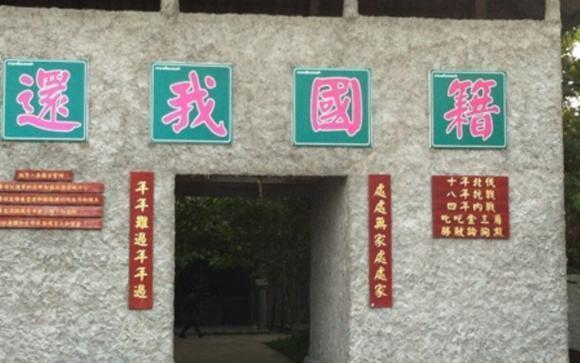After the Battle of the Crossing River, the various armies of the People's Liberation Army began to launch a final attack to the south, and some of the Kuomintang troops fled southwards, some were annihilated by the Plaster, some were transported to Taiwan Island by the Kuomintang naval forces, and some fled to Vietnam, Burma and other Southeast Asian countries. Most of these troops who fled abroad were later picked up by the Taiwanese side, but one unit remained abroad, this unit was the 93rd Division of the Kuomintang Army.

During World War II, the 93rd Division of the Kuomintang Army participated in the expeditionary force, entered the Jingdong area of Burma in February 1942, turned to more than 1,500 kilometers, fought fiercely with the Japanese army hundreds of times, and achieved outstanding battle achievements, so that the Japanese army suffered a rare heavy blow since the Pacific War, and paid a huge sacrifice for opening up the Burma Highway. During the Liberation War, this unit was subordinate to Li Mi's Eighth Army, and after the Eighth Army was defeated by the Siye Army in Hunan, the commander Li Mi threw away the troops and fled to Taiwan alone, and the remnants of the Eighth Army fled south.
The 98th Division was reluctant to surrender, and ran south with some of its families until early 1950, when it entered Burmese territory and settled on the border between Burma, Thailand and Laos. The Burmese government did not want to accept this unit, so it sent heavy troops to encircle and suppress this unit, although the 93rd Division could not defeat the People's Liberation Army, but it was also a unit that had gone through three years of the Northern Expedition War, ten years of agrarian revolutionary war, half a year of anti-Japanese war and three years of civil war, and had very rich experience in actual combat, and in the battle with the Burmese government army, this unit won the victory without much effort.
Li Mi saw that this unit had a certain combat effectiveness, and in order to gain political capital from Chiang Kai-shek, he ordered this unit to reorganize its armaments in the border areas and prepare for a counteroffensive. After a year of construction, Li Mi ordered the commander of the 278th Regiment of the 93rd Division to lead the troops to counterattack. The offensive of this unit was very fierce, coupled with the fact that the People's Liberation Army did not expect the Kuomintang army to dare to counterattack, it was caught off guard, and in a month the enemy took away four border cities in Yunnan, and Erye transferred three divisions of tens of thousands to completely repel this unit.
After the 93rd Division withdrew to Burma, the Burmese army and India reached an agreement, the Indian army and the Burmese government army organized a joint army to launch an attack on the 93rd division, and the Burmese government army also invited mercenaries at that time. But after a fierce battle, this force was also defeated by the Plakewarm. The Burmese government had no way to file a complaint with the United Nations, and under the mediation of the United Nations, the Taiwan side withdrew the old, weak, sick and disabled, but still left 3,000 troops.
In the 1960s, officers and men of the 93rd Division, who remained in the Golden Triangle, planted opium, transported heroin, and provided armed protection for drug dealers in order to survive. In order to solve the chaos in the northern region and improve the combat effectiveness of the troops, the Burmese government wanted to let the officers and men of the 93rd Division become Burmese nationals, but the officers and men of the 93rd Division refused.
In 1970, with the intervention of the Thai royal family, the Thai king personally commanded the security, and the officers and men of the 93rd Division occupying the Golden Triangle, under the leadership of General Duan Xiwen, handed over all their weapons and equipment to the Thai government, and all the soldiers and all their dependents became Thai nationals.